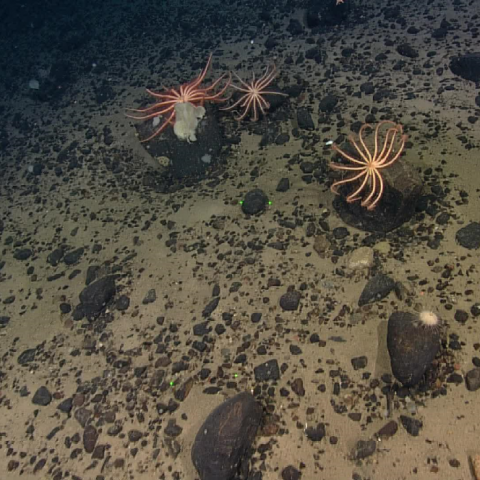
Sarah de Mendonça, MSc Candidate
Dalhousie University, Department of Oceanography
I completed a Bachelor of Science with a major in Marine Biology Honours Co-op. I look forward to furthering my education and academic research. Some of my research interests include marine conservation and environmental risk assessment, as well as marine invertebrate biology and ecology.
Supervisor(s): Dr. Anna Metaxas
Start to Finish: 9/2016 to TBD
CHONe Project: 1.2.4: Evaluating the effectiveness of a deep-water MPA; the Laurentian Channel AOI
Project Title: Factors affecting megafaunal species distribution in deep-sea conservation areas: relevance to the design of effective monitoring and attaining conservation targets.
Project Description:
I will analyze factors that determine spatial distribution and health condition of megafauna (such as sea pens, sponges and echinoderms) and their relevance to the monitoring and managing of deep-sea conservation areas. The project will assess abundance, size-frequency, and fine-scale species distribution across different deep-sea conservation areas in the Northwest Atlantic Ocean. Potential study areas include the Laurentian Channel, St. Ann’s Bank, and possibly the Flemish Cap. Overall, this study could help to identify and recommend some important factors for consideration, to contribute to the development of effective monitoring strategies and protocols that can be extended to other deep-sea MPAs.
The specific project/thesis aims are:
- Assess megafaunal abundance
- Determine recruitment by size-frequency distributions
- Assess spatial configuration, including patchiness and connectivity
- Use species distribution models to relate fine-scale species distribution to environmental predictor factors
- Identify and recommend monitoring strategies and protocols
This project will focus on the conservation of deep-sea ecosystems through an assessment of the megafauna communities. Therefore, it will aim to support the broader CHONe II goals to develop better ocean ecosystem conservation strategies.

